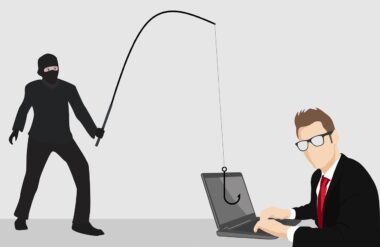Common Scam Techniques Used During Tax Season
Tax season can be a hectic time for many individuals. Unfortunately, this period also sees a rise in financial scams targeting unsuspecting taxpayers. Scammers employ various tactics to trick people into revealing personal information or sending money. One of the most common techniques is phishing, where fraudsters send emails that appear to come from legitimate sources like the IRS. These emails often ask recipients to click on links or download attachments that contain malware. Vigilance is essential in recognizing such attempts. Always verify the sender’s email address and avoid clicking on links in unsolicited emails. Additionally, be cautious of phone calls from individuals claiming to be from the tax authorities. Scammers often use aggressive tactics or threats to create a sense of urgency. If you receive such a call, hang up and contact the IRS directly for confirmation. Remember, the IRS will never ask for personal information through email or text. Trust your instincts; if something feels off, it likely is. Always prioritize protecting your personal and financial data during this period.
Recognizing Phishing Emails
Phishing emails remain one of the most prevalent threats during tax season. These messages often entice you with promises of refunds or important updates. Being able to recognize these emails is vital. Look out for generic greetings, such as “Dear Taxpayer,” which are often indicators of phishing attempts. Legitimate organizations typically address you by name. The email may also contain suspicious links that redirect you to fake websites designed to capture your personal information. Always hover over links to check the URL before clicking. Another common characteristic is grammatical errors or typos, since scammers often don’t pay attention to detail. These can be red flags. If you’re ever in doubt, it’s safer to access your account directly through the official website rather than through a link in the email. Additionally, use security features like two-factor authentication whenever possible for an added layer of protection. Trust your instincts when scrutinizing emails, and never share sensitive info unless you are absolutely certain of who you’re communicating with. Scam awareness can help you stay safe.
Another prevalent scam technique involves identity theft, especially during tax season. Scammers may use stolen personal information to file fraudulent tax returns. They submit forms using your Social Security number, which often leads to unexpected tax bills or complications with legitimate filings. To minimize the risk of identity theft, safeguard your personal information. Regularly monitor your financial accounts and credit reports for suspicious activities. One best practice is to ensure you’re using secure networks when accessing sensitive information. Avoid public Wi-Fi when managing taxes or banking online. Choose strong, unique passwords for your accounts and change them regularly. Consider putting a fraud alert on your credit report if you suspect your data may have been compromised. This action will make it harder for scammers to open accounts in your name. Moreover, be wary of sharing personal information even with trusted sources. If someone asks for your Social Security number or financial details in a non-secure way, question their legitimacy. Protecting yourself during tax season requires a proactive approach, so stay alert and cautious with your data.
Understanding Tax-Related Scams
During tax season, certain types of scams specifically target refunds. These refund scams can seem very convincing. Scammers might contact you to claim that you owe money or that you are entitled to an unusually large refund. They may even ask for your bank account details for direct deposit. If you encounter such requests, never provide your information before verifying the legitimacy. The IRS typically sends official communication through the postal service rather than email. Always cross-reference any phone numbers with official IRS resources. Be skeptical of calls demanding payments immediately. Legitimate agencies will offer you proper channels for addressing any outstanding tax issues. Understand that the IRS has clear guidelines about their processes and the manner in which they contact taxpayers. Additionally, never click on links from unsolicited messages inviting you to claim a refund or provide your Social Security number. These links likely lead to phishing sites. Investigating and staying informed about current scams can prevent you from falling victim to these fraudulent schemes. Trust your instincts and always prioritize your security during this critical time.
Another tax season scam involves fake agencies that claim to offer tax preparation services. These imposters may promise incredible results and fraudulently file your taxes without your knowledge or consent. They often entice people who are less experienced with taxes or are looking for easy solutions. To protect yourself, ensure that any tax preparer you choose is reputable and qualified. Research their credentials and verify their history with previous clients. Inquire about their fees upfront and always read contracts before signing anything. This due diligence will help you avoid falling for scams. Avoid offers that seem too good to be true, as they often are. Additionally, be wary of firms that promise large refunds based solely on your file. A trustworthy tax professional will provide realistic expectations based on your actual financial situation. Furthermore, ensure that any preparer you hire has a Preparer Tax Identification Number (PTIN). Avoid allowing unqualified individuals to manage your tax returns. Keeping vigilant and doing thorough research on potential tax services can safeguard you from falling prey to such misleading scams.
Protecting Yourself Against Tax Scams
To protect yourself from tax-related scams, education is crucial. Knowledge about current scams can significantly reduce the risk of financial fraud. Always stay informed about the latest scams affecting taxpayers. Resources like the IRS website or consumer protection agencies can keep you updated on trending scams. Moreover, don’t hesitate to report any suspicious communication to the authorities. They rely on public help to identify and take down fraudulent activities targeting taxpayers. If something appears suspicious, gather documentation and report it. Regularly check your credit score and bank account statements for any unexpected transactions. Setting up transaction alerts can also help you monitor your financial activities in real time. Additionally, consider subscribing to identity theft protection services that provide alerts and restore your identity in case of fraud. These options can offer peace of mind during tax season. Remember to continuously update your passwords and utilize secure connections when submitting your tax information online. By remaining proactive and diligent, you can significantly lower your chances of becoming a victim of financial scams. Your vigilance is key in securing your finances.
Lastly, maintaining open communication with family members or friends can also help in recognizing potential scams during tax season. Discussing financial matters within trusted circles can increase awareness about common tactics that scammers use. Encourage everyone to share any suspicious activities they have encountered. This communal approach creates a culture of caution. You can also recommend resources, such as IRS publications or articles about tax fraud, that outline preventative measures. Having conversations about finances can demystify tax-related concerns and encourage others to stay informed. It also fosters a supportive network that can alert each other about potential risks. Be aware that many seniors and inexperienced individuals are frequently targeted during tax time. Offer your assistance in guiding them through the process and informing them of red flags to watch. Stay updated on current scams and share this knowledge among your community. Awareness through educational conversations can protect not only yourself but others as well. When communities come together to share information and support, it strengthens each individual’s ability to avoid scams, making tax season less stressful and more secure.
By implementing these strategies and staying vigilant, you can protect yourself from scams during tax season. Always act with caution and trust your instincts regarding financial communications. Understanding common tactics used by scammers is your first line of defense. Equip yourself with knowledge, utilize trusted resources, and participate in conversations about financial safety. Education and awareness are essential tools in combating scams. Learn to recognize phishing emails, safeguard personal information, and be skeptical of unsolicited communication. Encourage others to be informed, recognize the signs of scams, and report suspicious activities. Collectively taking action generates stronger tools for preventing fraud. Remain proactive, ensuring your financial security during the busy tax season. This not only will protect you but also help to keep your family and friends safe from financial harm. Whether it’s taking time to examine your emails carefully or discussing tax season strategies with loved ones, it creates a safer environment for everyone involved. Financial scams are ever-evolving, but your diligence and commitment to education can make a significant difference. Stay informed, stay alert, and take action every tax season!





